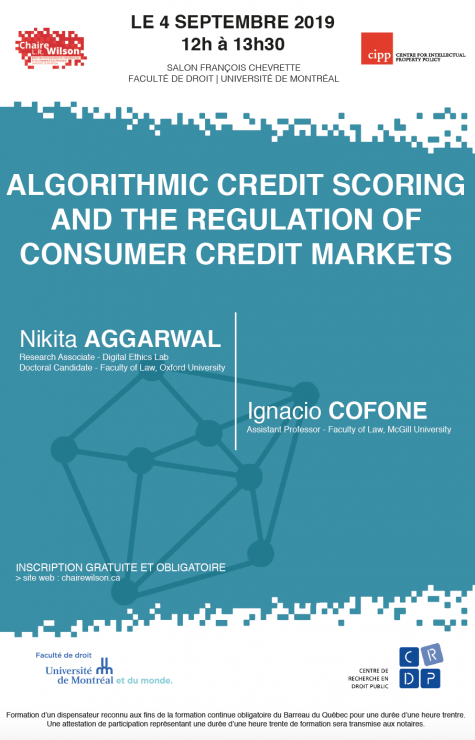 Abstract
Abstract
This presentation examines the growing use of alternative data and machine learning by credit providers to assess the creditworthiness of borrowers — a trend described as ‘algorithmic credit scoring’— and the implications of this trend for the functioning and regulation of consumer credit markets. It finds that a key consequence of algorithmic credit scoring will be to reduce and ultimately reverse the asymmetry of information between lenders and borrowers, wherein lenders typically know less than borrowers about factors affecting the latter’s creditworthiness. Rather, lenders could know more about borrowers than they know about themselves. Whether this has a positive or negative impact on consumer credit markets depends on the relative value attributed to different, often competing, normative goals: in particular, efficiency, distributional fairness and privacy. The paper highlights key considerations relating to each of these goals due to the proliferation of algorithmic credit scoring, and identifies how this socio-technical development challenges the traditional assumptions and modalities of consumer credit regulation.
to continue learning about the subject
Nikita AGGARWAL, « Machine Learning, Big Data and the Regulation of Consumer Credit Markets: The Case of Algorithmic Credit Scoring« , (2020) SSRN














